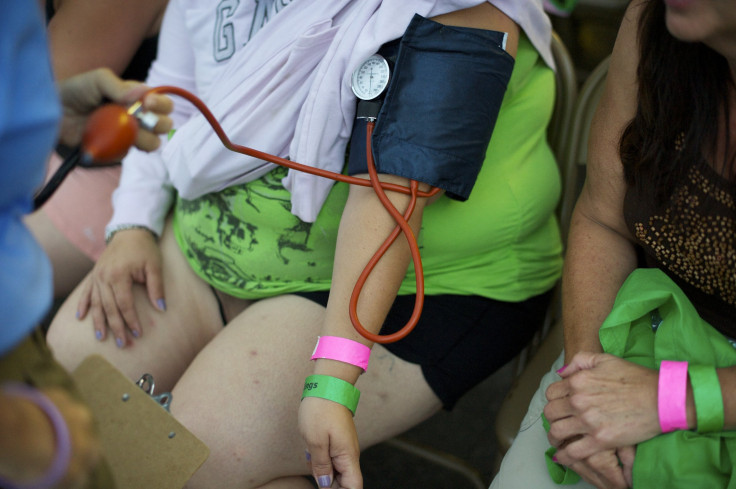High Blood Pressure During Middle Age Damages Brain Structures

People with uncontrolled high blood pressure in middle age have structural brain damage before they hit old age, says a new study.
Researchers at UC Davis found that white and gray matter present in the brain was significantly damaged in people who have hypertension.
"The message here is really clear: People can influence their late-life brain health by knowing and treating their blood pressure at a young age, when you wouldn't necessarily be thinking about it. The people in our study were cognitively normal, so a lack of symptoms doesn't mean anything," said Charles DeCarli, professor of neurology and director of the UC Davis Alzheimer's Disease Center.
Normal blood pressure is considered a systolic blood pressure below 120 (top number) and a diastolic pressure below 80 (bottom number).
Prehypertensive blood pressure range is a top number between 120 and 139 and a bottom number between 80 and 89. Blood pressure that is higher than 140 over 90 is considered as high BP, says a news release from UC Davis.
The study included more than 500 participants who were around 39 years old at the start of the study. Their blood pressure was checked and study subjects were assigned into different groups; those that had normal blood pressure, those who were prehypertensive and those who had high blood pressure. The participants' lifestyle was also assessed during their study.
Researchers conducted brain scans of the study participants. They found that people who had high BP had suffered as much brain damage as an older person with normal blood pressure would. Hypertensive patients had, on an average, 6 percent less gray matter in the frontal and temporal lobes than people who had normal blood pressure.
Why the brain gets damaged prematurely isn't clear. Researchers speculate that the damage might have occurred due to the stiffening of arteries in people who have high BP. This stiffening restricts the flow of blood to certain areas of the brain.
"This work suggests that recently described white matter microstructural damage associated with high blood pressure in the elderly may be detectable earlier in the life span, further reinforcing the view that vascular brain injury may develop insidiously over several decades. These results emphasize the need for early and optimum control of blood pressure, which is neither routinely achieved nor subject to testing in randomised controlled clinical trials," said Pauline Maillard, the postdoctoral fellow in the UC Davis Department of Neurology and lead author of the study.
The study is published in the journal Lancet Neurology.
Around 67 million people, that's one out of every three people living in the U.S. have high blood pressure and about half of these people, 36 million, don't have it under control, according to the Centers for Disease Control and Prevention.



























